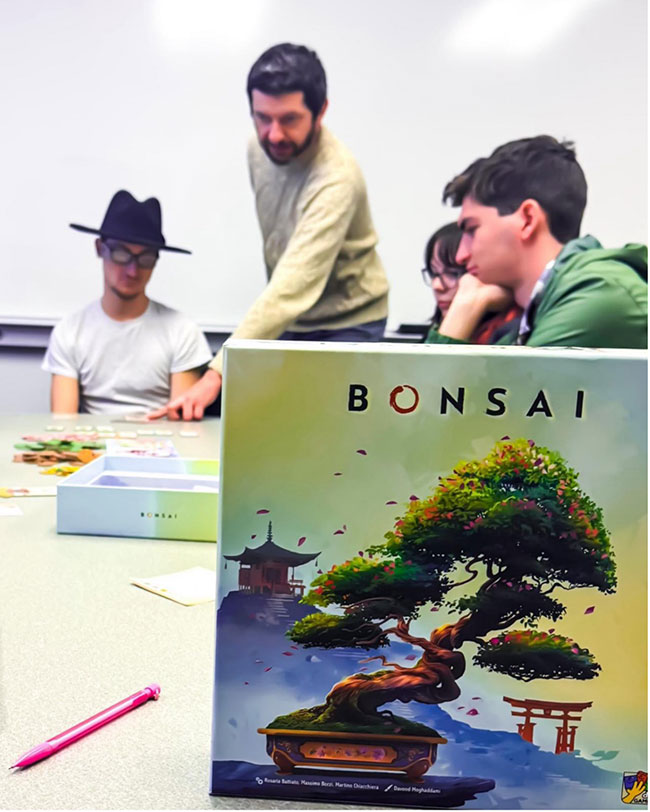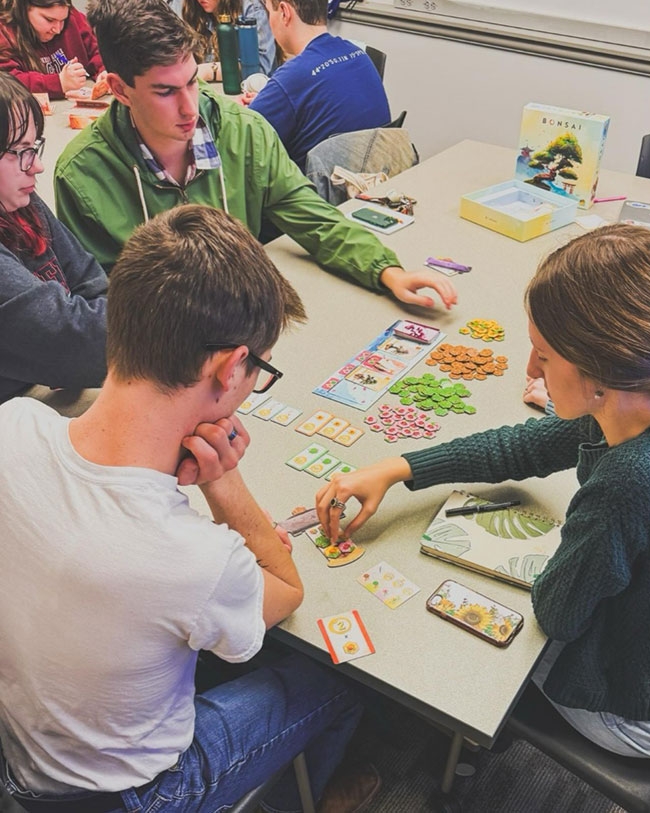Professor Arnaudo uses innovative methods of teaching that incorporate gaming into his classes. He uses games in many ways. This semester, he taught a class about games in Italian culture. Students learned about and played traditional Italian games like Scopa and modern games that have made Italian designers world famous. Professor Arnaudo, who is a published designer himself, also shared his creations with the students. They were given the chance to play them and later the opportunity to discuss with him all the details of the creative process that comes with board game design. Students in this class also read and discuss gamebooks. This style of interactive fiction was invented in the US, perfected in the UK, and brought to Italy as an imported product. The Italians quickly fell in love with it, though, and started creating their own gamebooks, putting an innovative spin on the original concept. Italian gamebooks became a great example of “remade in Italy,” showing the Italian creative propensity for embracing foreign cultural artifacts and turning them into something personal and unique. For their final project, the students create a boardgame or a gamebook based on Italian culture.
Teaching Is a Game


In his class for the Hutton Honors College, Professor Arnaudo uses games to bring theories of leadership to life. The class is called Leadership: From War to Peace, and it focuses on military leadership and its applications to civilian leadership, and touches upon such classic thinkers as Sun Tzu, Machiavelli, and Clausewitz. After reading and discussing a text, the students play a game that exemplifies the principles shown in the text. For example, after talking about the importance of preparation and coordination in leadership, the students play a large naval battle game about Trafalgar, in which those factors were key to ensure an English victory. After learning about restraint and subtlety from Sun Tzu, they play a game about the warring states in Ancient China in which employing those strategies is necessary to win. To show the importance of diplomacy, compromise, and negotiation, the students play a role-playing game in which they take on the role of politicians in the Kentucky legislature in the fateful year 1861. Tasked with the job of completing individual objectives from the point of view of the people who were there, the students write and deliver speeches, make agreements, vote on bills, and try to affect the political landscape of the time. Based on the students’ decision, Kentucky may stay loyal to the Union, secede, or maintain neutrality. This year, Kentucky managed to maintain neutrality.
The method of combining readings, discussions, and games to teach about leadership is not Professor Arnaudo’s invention. Rather, he borrowed from military academies around the world, which routinely use it to train their officers. In other words, Professor Arnaudo’s students are exposed to the very same pedagogical methods that the professionals in the field consider to be the most appropriate.
Professor Arnaudo uses games while also teaching Italian culture and language. The students in his M400-level seminar this spring had a chance to learn about Italian society through exploring different board games. As their final project, they designed, tested, and presented their own board games: all in Italian, because playing is learning.
-Marco Arnaudo
 The College of Arts
The College of Arts